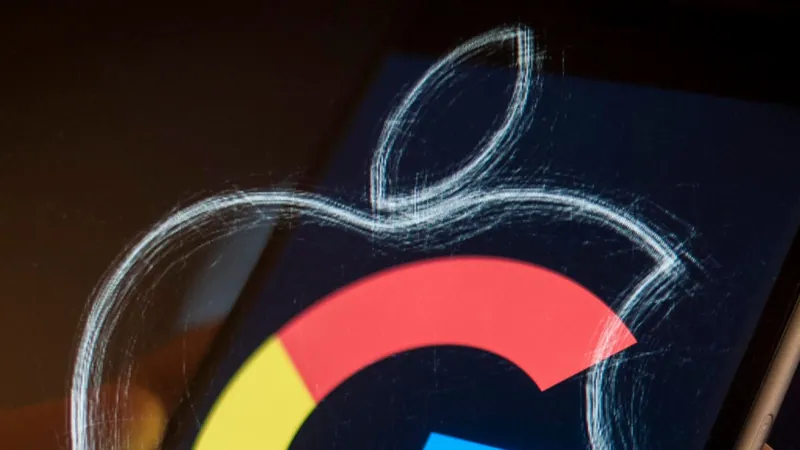
Why Google’s New Android Changes Might Push Users to iPhone
2025-08-28
Author: Amelia
In a shocking turn of events, Google has revealed a major overhaul to the Android ecosystem that has left many users voicing their concerns. Just hours after the announcement, a significant backlash erupted online, with some users even suggesting that it might be time to switch to iPhones.
This wave of discontent sparked lively discussions on Reddit, where users questioned the very purpose of staying with Android post-changes. One commenter provocatively suggested that restricting app installation is essentially Google’s way of crafting an advertisement for the iPhone.
Critics argue that with these new restrictions, Google has stripped away the core benefits that made Android appealing. One user lamented, if they have to live in a walled garden, it should at least be visually appealing.
Google justifies this radical change by claiming it will provide an additional layer of security aimed at preventing malicious activities. Starting next year, all app developers must be certified, and users won’t be allowed to install applications from uncertified sources—a significant shift from the traditional open nature of Android.
Jason Soroko from Sectigo remarked, "Turning what was once an open bazaar into a gated community transforms exploration into compliance, converting trust into a toll booth." He further points out that this shifts the risks, as a registration process won’t necessarily deter professional scammers but could hinder casual developers.
While Google promotes this policy as a move towards a safer environment for developers and users alike, there are skeptics who believe it’s a tactic to enforce their so-called "30% tax" on developers.
According to Google, these changes, set to roll out globally by 2027, are designed to enhance the ecosystem by: deterring anonymous bad actors, linking harmful apps to their creators, and boosting user trust. But is this rationale resonating?
The backlash is palpable, and opinions are divided. Trey Ford from Bugcrowd humorously noted how Apple users find the drama amusing. Yet, he conceded that for less technical users, Google’s move could establish a much-needed security baseline.
With the lines between Android and iPhone becoming increasingly blurred, this policy change might ironically bolster Apple’s competitive edge. As Android evolves, it begs the question—will users opt for a more secure ecosystem, even if it means surrendering some flexibility, or will they cling to the freedom that Android once offered?









 Brasil (PT)
Brasil (PT)
 Canada (EN)
Canada (EN)
 Chile (ES)
Chile (ES)
 Česko (CS)
Česko (CS)
 대한민국 (KO)
대한민국 (KO)
 España (ES)
España (ES)
 France (FR)
France (FR)
 Hong Kong (EN)
Hong Kong (EN)
 Italia (IT)
Italia (IT)
 日本 (JA)
日本 (JA)
 Magyarország (HU)
Magyarország (HU)
 Norge (NO)
Norge (NO)
 Polska (PL)
Polska (PL)
 Schweiz (DE)
Schweiz (DE)
 Singapore (EN)
Singapore (EN)
 Sverige (SV)
Sverige (SV)
 Suomi (FI)
Suomi (FI)
 Türkiye (TR)
Türkiye (TR)
 الإمارات العربية المتحدة (AR)
الإمارات العربية المتحدة (AR)